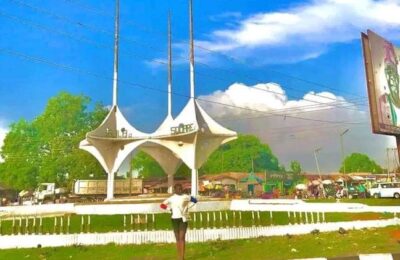Introduction
Nigeria’s infrastructural deficit remains one of the most significant challenges impeding the nation’s development trajectory. Among critical infrastructure needs, the Idah-Onitsha Road, stretching approximately 162 kilometers , is a vital economic artery connecting Nigeria’s North Central geopolitical zone with the southeastern geopolitical zone. This route links the town of Idah in Kogi State to Onitsha in Anambra State—two key commercial hubs—facilitating trade, transportation, and regional integration across Nigeria’s North Central and southeastern regions.
The idea of constructing this road has been around for decades. It was first proposed in the early 1980s as part of Nigeria’s broader infrastructural development plans aimed at boosting regional connectivity and economic growth (Federal Ministry of Works, 1982). Over the years, various government administrations have acknowledged the importance of this corridor and included it in infrastructural blueprints. However, despite numerous promises and plans, actual construction has yet to materialize, and the road remains in a state of neglect.
Decades of neglect, adverse weather, and poor maintenance have left this corridor in disrepair, severely hampering the movement of goods and people. The urgent need is not merely to reconstruct but to completely build anew this essential road, transforming it into a modern, durable highway that can support Nigeria’s economic ambitions and regional development.
The Significance of the Idah-Onitsha Road
Economic Lifeline
The Idah-Onitsha route is a major conduit for intra-regional trade, connecting the agriculturally rich North Central with the bustling southeastern markets. It supports the movement of agricultural produce, manufactured goods, and raw materials vital for Nigeria’s economy. Its strategic importance is underscored by its role in:
Facilitating Trade
- Linking farmers, traders, and industries, enabling the movement of commodities such as cassava, yams, cocoa, and palm oil (Nigerian Investment Promotion Commission, 2018).
Supporting Small and Medium Enterprises (SMEs): - Reduced transportation costs empower SMEs to expand their market reach.
Promoting Industrialization : - The route is essential for transporting raw materials to processing plants and finished goods to markets. Socio-Economic Impact
The road directly influences the socio-economic well-being of millions by:
Reducing Travel Time:
- During the rainy season, journeys that once took less than 2 hours now stretch over 4 hours, increasing costs and fatigue (Federal Ministry of Works, 2022).
Enhancing Access to Social Services: - Improved infrastructure ensures residents can reach healthcare centers, schools, and government services more efficiently.
Creating Employment Opportunities:
- Better roads attract investments and stimulate local economies, generating jobs in construction, trade, and services. Regional Integration and Security
A well-constructed Idah-Onitsha Road fosters regional cooperation, cultural exchange, and security collaboration among neighboring states. It also underpins Nigeria’s vision of a united, economically integrated nation.
The Current State: Challenges and Impacts
Deterioration and Disrepair
The corridor has suffered from decades of neglect, with sections washed away by floods, erosion, and poor maintenance. The Federal Ministry of Works’ recent assessment indicates that the entire 162-kilometer route remains critically in need of new construction to replace the dilapidated infrastructure (Federal Ministry of Works, 2023).
Impact on Travel and Economy
Increased Travel Time and Costs: The journey now exceeds 4 hours during the rainy season, compared to less than 2 hours in better conditions.
High Vehicle Maintenance Costs:
- Poor road quality leads to frequent breakdowns, raising transportation expenses.
Limited Market Access : - Farmers and traders face delays, spoilage, and higher costs, which diminish income and competitiveness.
Safety Concerns:
- Flooded and eroded sections increase accident risks, endangering lives and property. Broader Impacts
The absence of a modern, durable route hampers Nigeria’s efforts to diversify its economy, develop its agricultural sector, and maximize oil and mineral resource exploitation (Nigerian National Bureau of Statistics, 2020).
The Role of the Road in Nigeria’s Oil and Resource Development
Oil Reserves in the Region
The corridor from Idah to Onitsha traverses Nigeria’s oil-rich Idah and Ibaji—a zone with significant petroleum reserves and exploration potential. Unlocking these reserves is vital for Nigeria’s economic growth, as oil remains the country’s most significant revenue source (Nigerian Upstream Petroleum Regulatory Commission, 2021).
Impacts of Building a New Road on the Oil Sector
Accelerate Oil Exploration and Production:
- A new, durable road allows faster deployment of exploration equipment, personnel, and logistics, boosting Nigeria’s oil output.
Support Oil and Gas Infrastructure Development:
- The route is critical for transporting materials for pipelines, wells, and processing facilities, facilitating resource exploitation.
Increased Revenue Growth:
- A modern highway enhances logistical efficiency, leading to higher oil production volumes and increased government revenues.
Promote Local Content and Community Development:
- Improved infrastructure fosters local participation in oil activities, creating employment opportunities and socio-economic upliftment.
Strategic Importance
Building this highway aligns with Nigeria’s national oil policies and regional development strategies, making it a vital infrastructure project with profound national implications (Federal Ministry of Petroleum Resources, 2022).
How Construction Will Impact Travel Times
Current Travel Times
From Abuja to Onitsha: Currently, the journey spans roughly 480 kilometers and takes 8-10 hours, with longer durations during adverse weather conditions (Federal Ministry of Works, 2022).
Post-Construction Travel Times
From Abuja to Onitsha: Once the new highway is completed, the journey could be shortened by 2 to 3 hours.
Estimated Time:* The trip could be reduced from about 9-10 hours to approximately 6 hours.
Impact: This reduction equates to a 30-33% improvement, drastically enhancing logistics, commerce, and mobility.
Specific Impact of the New Highway
The 162-kilometer section would see travel times drop from over 4 hours to about 2 hours or less, transforming regional connectivity and economic activities.
The Need for Collaborative Efforts: North Central and South East Development Commissions
Why Collaboration is Critical
Given the strategic importance of this corridor, especially from Idah to Onitsha, concerted efforts from Nigeria’s regional development agencies are essential. The North Central Development Commission (NCDC) and the South East Development Commission (SEDC) should partner to:
Pool Resources :
Combining financial, technical, and human resources accelerates project completion.
Ensure Regional Balance:
Since the route links the North Central and southeastern Nigeria, joint efforts promote equitable development.
Coordinate Policies:
Harmonized infrastructural and economic strategies prevent duplication and promote sustainability.
Mobilize Funding:
A united front enhances advocacy for government and international donor support. Strategic Actions
Joint Planning and Fundraising:
Develop comprehensive plans, secure funding, and apply for grants together.
Shared Technical Expertise:
Leverage engineering, environmental, and social expertise for efficient implementation.
Community Engagement:
Foster local participation to promote ownership and social cohesion.
Attract International Support:
Engage development partners like the World Bank and African Development Bank.
Why Urgent Construction Is Necessary
The Idah-Onitsha Road is more than just a transportation route; it is a transformative infrastructure that can unlock Nigeria’s economic, social, and resource potential. The idea to construct this highway has been proposed since the early 1980s, but despite various government plans and promises over the decades, actual construction has yet to materialize.
This new, fully constructed highway will:
Significantly cut travel times—reducing the Abuja-Onitsha journey from 9-10 hours to about 6 hours .
Facilitate seamless movement of goods, services, and people.
Unlock Nigeria’s oil and mineral reserves, boosting national revenues.
Promote regional integration, security, and socio-economic development.
How Construction Will Impact Nigeria’s Largest City-States
Current Travel Times
From Abuja to Onitsha : Currently, the journey spans roughly 480 kilometers and takes 8-10 hours*, with longer durations during adverse weather conditions.
Post-Construction Travel Times
From Abuja to Onitsha: Once the highway is completed, the trip could be shortened by 2-3 hours. Estimated Time: The journey could be reduced from about 9-10 hours to approximately 6 hours. Impact: This reduction represents a 30-33%* increase in efficiency, boosting trade and mobility.
Specific Impact of the New Highway
The 162-kilometer section would see travel times drop from over 4 hours to about 2 hours or less, transforming regional connectivity and economic activities.
Conclusion
The Idah-Onitsha Road has been on Nigeria’s infrastructural agenda since the early 1980s. Despite repeated promises, it remains unbuilt, and the current state of disrepair continues to hinder economic growth, regional integration, and resource development.
The urgent construction of a new, durable highway along this corridor is a national priority. It will significantly reduce travel times-cutting the Abuja – Onitsha journey from 9-10 hours to about 6 hours, and unlock immense economic, social, and regional benefits.
This project demands urgent action strategic partnerships especially between the North Central Development Commission and South East Development Commission.
– Comrade Opaluwa Eleojo Simeon wrote from Lokoja.




